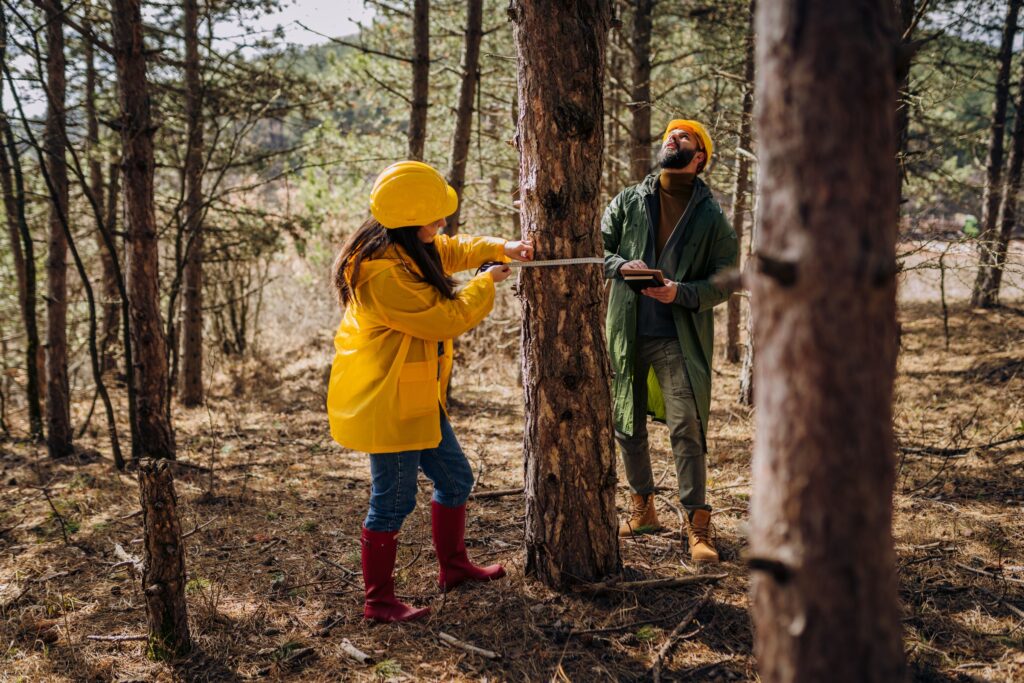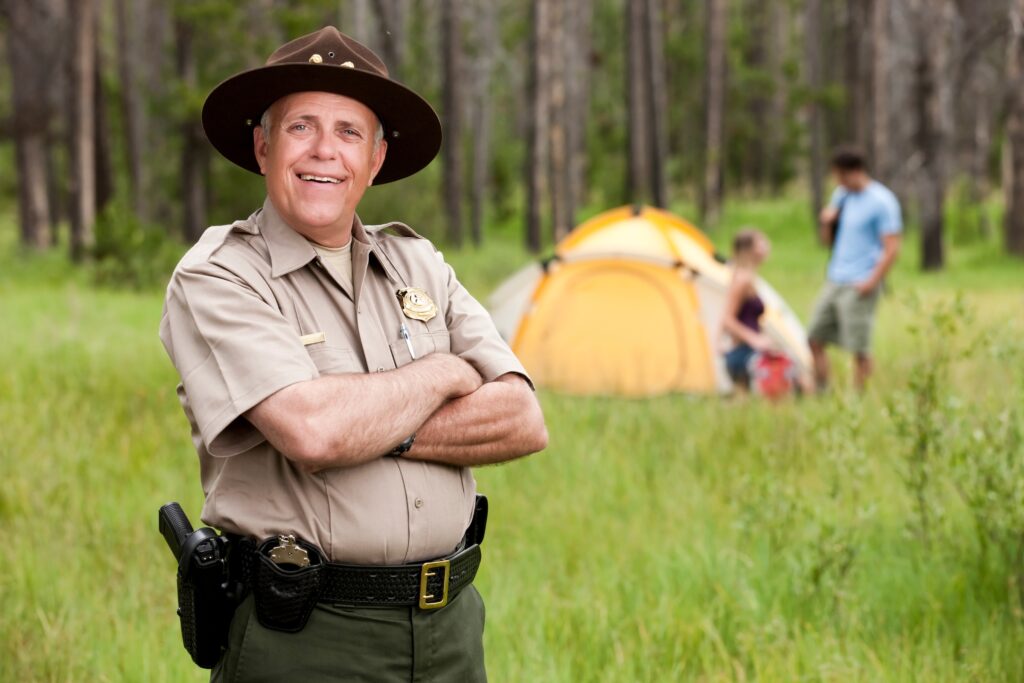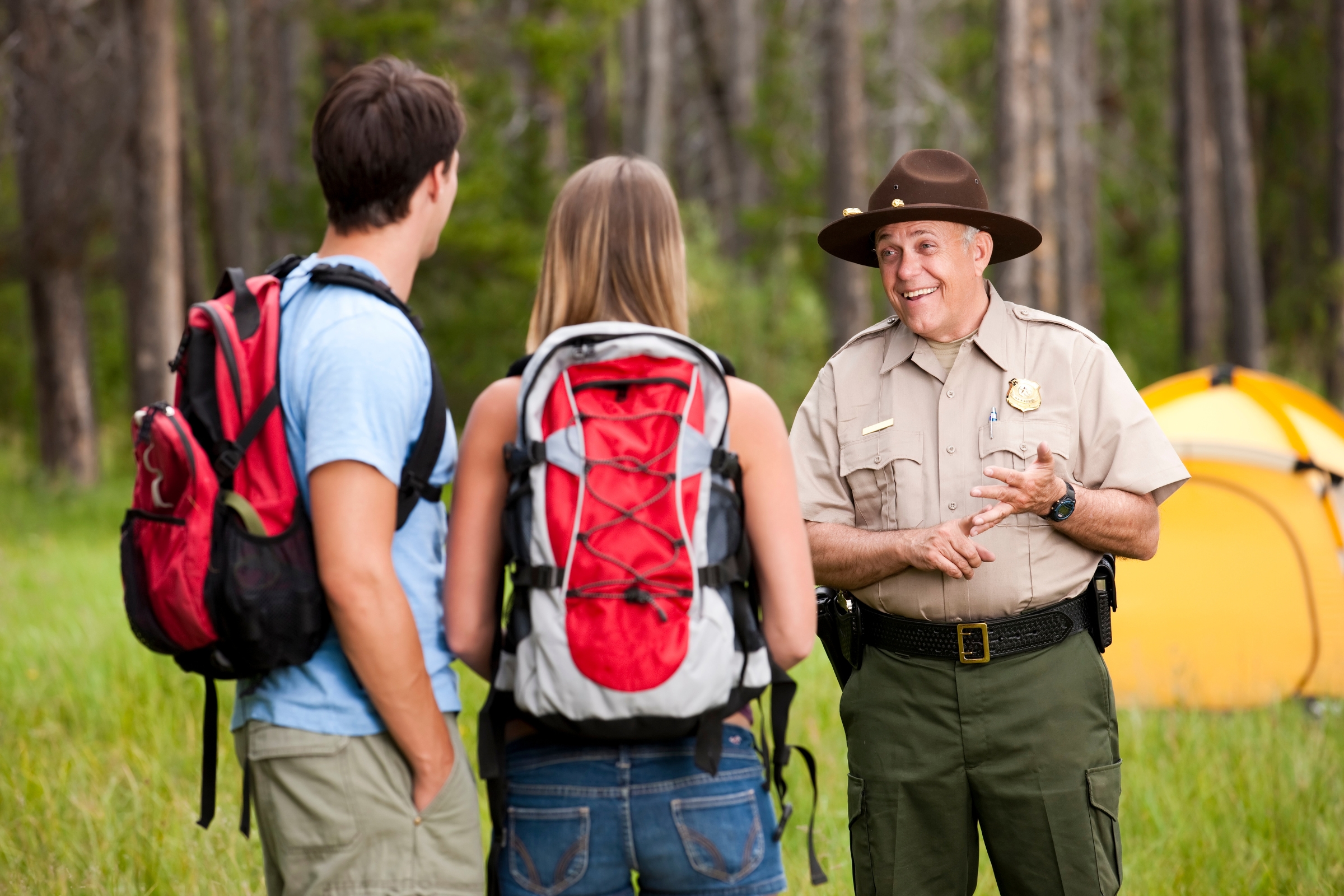As guardians of state parks and natural areas, park rangers work in national, state, and local parks where they protect and preserve the intrinsic values of these spaces. The role of a park ranger is multifaceted, encompassing wildlife management, maintenance of historical and cultural sites, and the implementation of efforts to protect delicate ecosystems. They serve as stewards of natural and cultural resources, ensuring the longevity and integrity of our public lands.
Park rangers also focus on education, aiming to educate visitors through tours and educational programs. They craft experiences that connect people with the environment, fostering appreciation and understanding of ecological and historical narratives. Through educational programs, park rangers help visitors engage with and learn about the diverse aspects of state and national parks, from the flora and fauna to the geological and anthropological histories that shape these places.
The Role of a Park Ranger
The park ranger’s role is integral to the management and operation of parks and recreation areas. They are tasked with a broad range of responsibilities that span conservation, public interaction, and park administration. Whether patrolling vast wildernesses or guiding visitors through historical exhibits, park rangers are the face of conservation and the bridge between nature and the public.
Stewardship of Natural Resources
Stewardship of natural resources is a cornerstone of a park ranger’s duties. Rangers are responsible for the preservation and management of a park’s natural resources, ensuring that these resources are protected against degradation and are available for future generations to enjoy. This includes monitoring ecosystems, managing habitats, and conducting research to inform resource management decisions.
Additionally, they maintain the park property, which involves tasks like trail upkeep, controlling invasive species, and restoring damaged areas. By doing so, park rangers play a critical role in maintaining the ecological integrity of the environments under their care. Their work supports biodiversity and helps maintain the balance of the ecosystems within the park’s boundaries.
Law Enforcement and Public Safety
Park rangers often serve as law enforcement officers within the boundaries of their parks, ensuring that visitors adhere to park regulations aimed at protecting both the natural environment and the safety of visitors. They patrol the parks to prevent illegal activities such as poaching, vandalism, and theft of natural resources. Rangers are trained to handle various situations, from enforcing fishing and hunting laws to preventing the destruction of sensitive habitats.
Moreover, public safety is paramount, and park rangers are on the front lines of emergency response, including wildfire suppression and sometimes even participating in scuba diving teams for underwater search and rescue. They are equipped with a range of skills to address and manage emergencies, ensuring that visitors can safely enjoy the beauty and adventure that the parks offer.
Environmental Education and Interpretation
Park rangers are educators and storytellers, playing a vital role in the public’s environmental education. They interpret the significance of public lands, connecting visitors to the natural world through interactive discussions and educational activities. By sharing their knowledge, they inspire stewardship and a more profound respect for the environment among park visitors.
Their interpretive programs are designed to illuminate the complexities of ecosystems, the importance of conservation, and the rich history of the lands. By fostering an informed and engaged public, park rangers enhance the visitor experience and contribute to the broader environmental awareness and protection goal.

Pathways to Becoming a Park Ranger
To become a park ranger, one must navigate a path combining formal education and hands-on experience. Aspiring rangers often pursue degrees related to parks and recreation, environmental science, or wildlife management, and gain practical skills through a mix of volunteer work, internships, and seasonal positions.
Essential Education and Training
The foundation of a park ranger’s career is built upon essential education and training in fields related to parks and recreation. Academic programs offer the theoretical knowledge necessary to understand complex environmental systems, while specialized training provides the practical skills required for effective park management and conservation practices.
Gaining Experience in the Field
Gaining real-world experience is crucial for aspiring park rangers. It’s through hands-on work that one learns the nuances of park operations and the challenges of managing natural resources. This experience can come from a variety of sources, such as participating in conservation projects, assisting with wildlife surveys, and working alongside experienced rangers.
Engaging in these activities not only enriches one’s understanding of the profession but also demonstrates a commitment to the field, which is invaluable when seeking permanent employment. Each task, whether it’s habitat restoration or visitor education, builds a foundation of skills and knowledge that is indispensable for a career in this field.
Volunteering and Internships
Volunteering and internships are excellent ways for individuals to immerse themselves in the world of conservation and park management. These opportunities provide a glimpse into the daily responsibilities of park rangers and offer a chance to make meaningful contributions to the preservation of natural areas. As volunteers or interns, individuals gain hands-on experience that is essential for professional growth.
Through these roles, one can develop key skills in environmental education, resource management, and public engagement, all while building a network of professional contacts. Such experiences are often pivotal in securing future employment and can be a stepping stone to a rewarding career as a park ranger.
Seasonal Work Opportunities
Seasonal work opportunities in state parks are a valuable entry point for those interested in a park ranger career. These positions offer a chance to work in various capacities, from visitor services to resource protection, providing a broad understanding of park operations. Seasonal roles can also lead to full-time positions, as they allow individuals to showcase their skills and dedication to the field.
Seasonal employment is not only a means of gaining experience but also an opportunity to experience the unique challenges and rewards of working in different park environments. It’s a chance to contribute to the mission of conservation while exploring the vast diversity of America’s natural landscapes.
The Day-to-Day Life of a Park Ranger
The day-to-day life of a park ranger is varied and dynamic, involving everything from administrative tasks to hands-on conservation work. Rangers are responsible for a wide range of activities that ensure the safety of visitors and the protection of the park’s natural and historical resources.
Routine Patrols and Maintenance Tasks
Routine patrols and maintenance tasks are fundamental to the daily responsibilities of a park ranger. These duties are essential for maintaining the safety of visitors and the integrity of park facilities. Rangers monitor trails, clean campgrounds, and perform repairs, ensuring that the park environment is both welcoming and secure.
Hosting Guided Tours and Educational Programs
Hosting guided tours and educational programs is a core aspect of a park ranger’s role within parks and recreation. Rangers lead visitors through the natural and historical wonders of the park, imparting knowledge and fostering a sense of connection to the land. These programs are designed to be engaging and informative, enhancing the visitor experience and promoting environmental stewardship.
Responding to Emergencies and Enforcing Park Regulations
Responding to emergencies and enforcing park regulations are critical components of a park ranger’s duties. Rangers are trained to act swiftly and efficiently in emergency situations, providing aid and coordinating with other emergency services when necessary. They also ensure that park rules are followed, preserving the natural environment and ensuring the well-being of all visitors.

Skills and Qualities for Park Ranger Success
To succeed as a park ranger, one must possess a unique blend of skills and qualities, including strong communication abilities, physical endurance, and a knack for problem-solving. These attributes enable rangers to effectively engage with the public, navigate the challenges of outdoor work, and make critical decisions in the face of complex conservation issues.
Communication and Public Interaction
As a park ranger, your ability to communicate effectively with the public is essential. You are the face of the park and the liaison between the natural environment and its visitors. This role involves conveying complex ecological information in an accessible manner, answering visitor questions, and ensuring the safety and well-being of guests. Whether it’s through interpretive talks or casual conversations, your communication skills help foster a deeper appreciation for the park’s resources.
Physical Endurance and Outdoor Skills
The job of a park ranger often requires high physical endurance and a diverse set of outdoor skills. You might spend long hours on foot or horseback, navigating through various terrains, often in challenging weather conditions. To be prepared for this, relevant training in areas such as wilderness first aid, survival techniques, and backcountry navigation is crucial. Such skills not only ensure your safety but also enable you to assist and educate visitors on how to responsibly enjoy the park.
Problem-Solving and Critical Thinking Abilities
Your role as a park ranger will frequently test your problem-solving and critical-thinking abilities. When faced with unpredictable situations, from wildlife encounters to visitor disputes, you must assess the scenario, weigh potential solutions, and make informed decisions swiftly. These skills are particularly critical when enforcing park rules and regulations to maintain visitors’ safe and enjoyable environment.
Variations in Park Ranger Careers
Park ranger careers offer a spectrum of roles that cater to different interests and skills. From specialized positions like conservation police officers to roles focused on historic preservation and wildlife biology, the possibilities are diverse. You may find yourself working in remote wildlife reserves or bustling state parks, each with unique challenges and rewards. The variation in job titles and specializations ensures that there is a niche for every passionate protector of public lands.
Diverse Job Titles and Specializations
Within the field of park management, job titles range from forest rangers to park police officers, each with distinct responsibilities. Forest rangers might focus on trail maintenance and wildfire prevention, while park police officers concentrate on visitor protection and traffic control. Conservation police are tasked with protecting wildlife and natural resources, often handling more complex law enforcement duties. These diverse specializations allow for tailored career paths that align with your interests and expertise.
Advancing Your Career as a Park Ranger
Advancing your career as a park ranger often involves a combination of field experience, professional development, and continuing education. Agencies like the NPS employ park rangers in various capacities, from interpretive talks to emergency medical response. Seeking opportunities for growth, such as positions in park and recreation management or visitor safety, can lead to a more specialized and rewarding career path.
Professional Development and Continuing Education
The field of park management is dynamic, and keeping abreast of the latest practices in wildlife biology and conservation is crucial for career advancement. Continued learning can take the form of workshops, certifications, and advanced degrees, which not only enhance your expertise but also open doors to higher positions within the park system, such as becoming park managers or leading complex conservation efforts.
Preserving Our Parks for the Future
Preservation of our parks is an ongoing commitment that requires dedication to historic preservation and environmental stewardship. As a park ranger, your work in maintaining trails, protecting wildlife, and educating the public plays a crucial role in ensuring that these treasured landscapes endure for future generations to enjoy and cherish.
The Importance of Park Rangers in Conservation Efforts
Park rangers are indispensable in conservation efforts, acting as the guardians of natural and cultural history. Your responsibilities may include habitat restoration, wildlife monitoring, and implementing sustainable practices within the park. These actions contribute to the preservation of delicate ecosystems and historic sites, reinforcing the essential role park rangers play in safeguarding our environmental heritage.
How Park Rangers Shape Visitor Experiences and Perceptions
Through public interaction and education, you, as a park ranger, have the power to shape visitor experiences and perceptions profoundly. By informing visitors about the cultural history of the lands, leading nature centers’ programs, or simply ensuring visitor safety, you help create memorable experiences that resonate with park visitors long after they leave, fostering a lasting connection to the natural world.
A Final Look: What Do Park Rangers Do
In summary, park rangers play diverse roles, from enforcing regulations to protecting wildlife and educating visitors. They ensure the safety and preservation of parks while facilitating enjoyable experiences for visitors. Understanding their responsibilities helps visitors cooperate and make the most of their park experiences. So next time you’re out exploring nature, remember the vital role park rangers play in maintaining these precious environments for all to enjoy.





